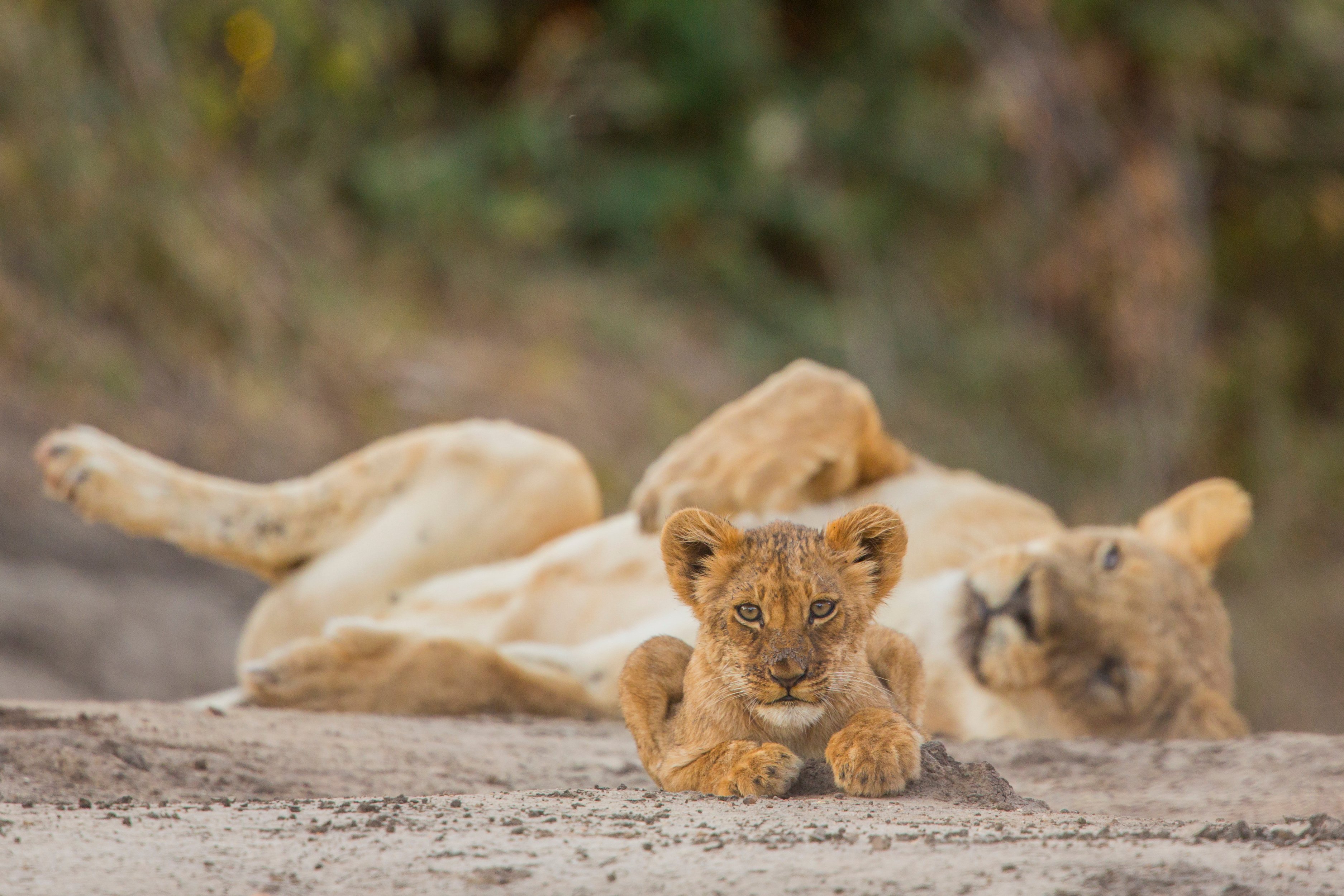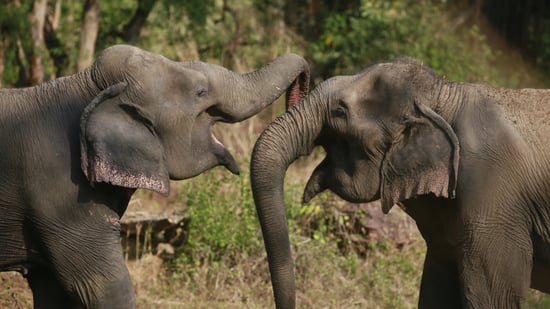World Farmed Animals Day
Animal Awareness Days
Celebrate World Farmed Animals Day on 2nd October and discover its significance, learn about factory farming, and explore ways to protect sentient beings.

Animal Awareness Days
Lions are the kings of the jungle, but even those at the top of the animal kingdom need our help. On World Lion Day, let’s see what’s really going on.
World Lion Day is an annual event that takes place on August 10th.
This year is the 10th World Lion Day. It was founded in 2013 by Derek and Beverly Joubert with the intention of raising awareness about the challenges lions face in the wild.
Prior to this, the Jouberts also partnered with National Geographic to create the Big Cat Initiative. Again, this initiative focused on trying to stop the rapid decline in lion populations.
The number of lions in the wild has dropped dramatically, and this trend is continuing. The population of African lions, for example, has dropped by 43% since 2001. Without our help, lion populations may never recover.
Lions aren’t typical farmyard animals, but thousands of lions are farmed around the world for their bones and other body parts. These are often used in traditional medicine, despite no evidence that they work. These animals have short, brutal lives of suffering.
Lions are social animals and they are able to empathise with other members of their pride. For example, they experience contagious yawning just like humans.
Like many other animals, lions are able to solve puzzles to obtain food. Unusually, they can also learn how to solve a puzzle simply by watching another lion solve it first. This shows a higher level of intelligence and social connection than most other animals.

Join our fight against the exploitation and commodification of wild animals. Can you lend your voice?
We can all celebrate World Lion Day by taking necessary steps to reduce the exploitation of lions.
Learn about the issue of commercial lion breeding and our evidence of cruel and illegal activity at “secret” lion farms.
Show travel companies that you’re serious about animal protection. Refuse to book with those who offer experiences with captive lions. Check our Real Responsible Traveller guide to see which companies are taking their responsibilities towards animal protection seriously.
Using animals, especially endangered wild animals, in medicine is bad for the planet and offers no medical benefits. Join our campaign to help put a stop to these practices.
Help us end the cruelty and suffering of wild animals.

When you make a donation, you’ll join a passionate group of supporters who are determined to change the world for animals. We're fighting animal cruelty wherever we find it — are you with us?
DonateNearly all lions currently live in Africa. They’re able to live in lots of different habitats, including open plains, dense brush, and even dry thorn forests. They will usually be found living close to a body of water which can also help them find prey.
Lions are highly intelligent animals who can solve problems easily. As sentient, social creatures, they can even work together to solve puzzles and obtain food.
Lions typically eat large or medium-sized animals, such as impala. They usually work together to hunt and stalk their prey rather than engage in a long chase.
Lions are described as “vulnerable”, with only about 20,000 African lions left in the wild. They are suffering from the loss of prey animals but they are also being hunted and caught for human purposes. These include entertainment and traditional medicine.
Captive lions are also used for “hunting experiences”. These experiences keep the lions in a confined space, allowing wealthy “hunters” a guaranteed kill. These lions often sustain agonising wounds and suffer significantly.
Lions are sentient, wild animals and cannot be domesticated. Their emotional and social needs can only be met by living in a pride with other lions.
We can protect lions by putting an end to their commercial exploitation. We can remove the demand for lions in tourist entertainment and boycott companies that still engage in these practices. We can also pressure governments to crack down on the use of lion parts in traditional medicine.
Only male lions have manes. This covering of longer hair around their necks and heads signals their health, virility, and dominance to both rivals and mates.
Lions live on average between 12 and 16 years in the wild and up to 25 years in captivity, though their quality of life may be severely diminished if kept in pseudo sanctuaries or used in wildlife tourism for commercial gain.
Lions can run at speeds of up to 50 miles per hour for short bursts when hunting.
Adult male lions weigh between 170 and 230 kg, while females are slightly smaller and lighter.
The largest lion living in the wild ever recorded was just under 3.3. metres long and weighed 270 kg.
The IUCN classifies all lions as vulnerable, while the Asiatic lion subspecies is classed as endangered.
Lions are found in savannahs, grasslands, open woodlands, and scrublands across sub-Saharan Africa and within Gir National Park in India. Threats to lion habitat include urbanisation, agriculture, and climate change.
There is just one lion species, known scientifically as Panthera leo. The Asiatic lion, found in the Gir Forest in India, is considered a subspecies.
Several lion subspecies are already extinct, including the Barbary lion and the Cape lion.
The lion population is decreasing, and there are just 23,000 to 39,000 mature adult lions left in the wild. Lion poaching, the lion bone trade, human-lion conflict, prey depletion, and habitat loss are all impacting their survival.
White lions are a rare genetic variant of African lions, not a separate species. There are very few white lions left in the wild.
Animal Awareness Days
Celebrate World Farmed Animals Day on 2nd October and discover its significance, learn about factory farming, and explore ways to protect sentient beings.
Animal Awareness Days
World Elephant Day is observed on the 12th of August. Despite their size, popularity and status, elephants desperately need protection. Find out more.
Animal Awareness Days
World Oceans Day on June 8th raises awareness of the importance of the world's oceans, join us in educating others on protecting marine biodiversity.
Blog
Learn how climate change affects wildlife and ecosystems around the world. Discover ways to help protect endangered species...
Blog
Learn how ocean exploitation is harming marine wildlife and what we can do to protect the oceans. Support...
Blog
Find out why habitat loss is causing physical and mental stress to animals. Plus, see how you can...
Blog
Learn about habitat fragmentation, its causes, and why it threatens wildlife habitat. Plus, see how to help stop...